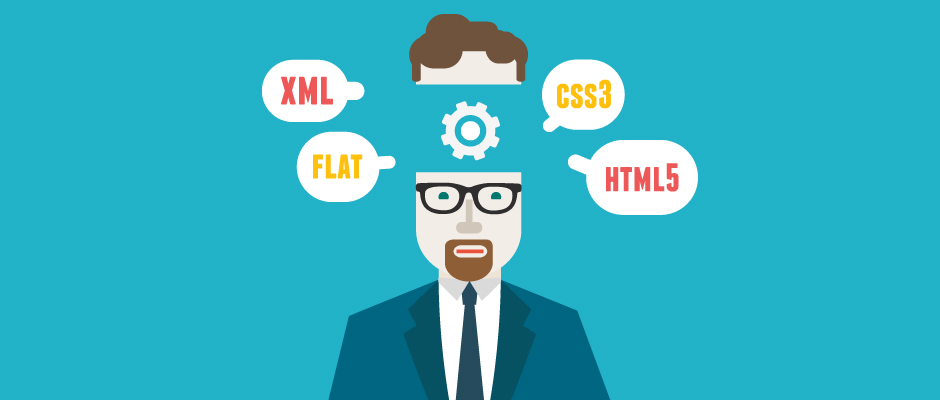Using @font-face to introduce fonts and set font-display to control loading behavior is key. 1. Correctly introduce fonts: Use @font-face to declare font paths and formats, give priority to using WOFF2 and maintain compatibility; 2. Control loading behavior: It is recommended to use font-display: swap to avoid page flashing; 3. Performance optimization: Loading font weights on demand, font subsetting, enabling caching strategies, and using system font alternatives to improve loading speed.

Loading and controlling custom web fonts is not complicated, but if the details are not handled well, problems are prone to occur. Many people will encounter situations where fonts are loading slowly, pages are flashing, or styles are not effective at the beginning. The key is to understand several core concepts and make good use of the relevant attributes provided by CSS.

1. Use @font-face to correctly introduce fonts
This is the basis for custom fonts. You can use the @font-face rule in CSS to declare the font file path and style information you want to use.

@font-face {
font-family: 'MyCustomFont';
src: url('myfont.woff2') format('woff2'),
url('myfont.woff') format('woff');
font-weight: normal;
font-style: normal;
}- Make sure the path is correct : the URL of the font file is relative to the location of the CSS file.
- Priority to using WOFF2 : It compresses better and loads faster.
- Multiple formats are for compatibility : although modern browsers support WOFF2, adding a WOFF as a backup can take care of the old system.
2. Control font loading behavior: avoid layout jitter
By default, the browser will use the system font to display text before the font is loaded, and switch to the past after the custom font is loaded. This can cause "text flickering" (FOIT or FOUT).
You can control this process through font-display property:

-
auto: It is up to the browser to decide how to display (usually manifested as FOIT) -
swap: Show alternate fonts immediately and replace them after the custom font is loaded -
fallback: Wait for a short time for custom fonts, otherwise use alternate fonts -
optional: Fonts may not load at all, suitable for mobile devices to save traffic
Recommended for use in most scenarios:
@font-face {
font-family: 'MyCustomFont';
src: url('myfont.woff2') format('woff2');
font-display: swap;
}This ensures that the page content is displayed as soon as possible and the user experience is more stable.
3. Performance optimization suggestions: reduce impact and improve loading speed
Font files are usually relatively large, and if not paid attention, it will affect the performance of the page.
Some practical suggestions:
?Load only the word weight and style you need
For example, only Regular and Bold are needed, and don’t introduce all font variants.?Use subset fonts
If your website is mainly Chinese or English, you can generate font files that contain only the required characters, greatly reducing the size.?Enable CORS and cache policies
If the font comes from the CDN, make sure the server is configured with the correct CORS header and set a reasonable caching policy.? Consider using system fonts as an alternative
Not all users need to see the font you specified. When designing, alternate fonts should be considered to not affect readability.
Basically that's it. Use @font-face and font-display well, and cooperate with some performance optimization methods to find a balance between visual and loading experience. Not particularly difficult, but many newbies ignore the impact of font loading on the overall experience.
The above is the detailed content of Embedding and Controlling Custom Web Fonts with CSS. For more information, please follow other related articles on the PHP Chinese website!

Hot AI Tools

Undress AI Tool
Undress images for free

Undresser.AI Undress
AI-powered app for creating realistic nude photos

AI Clothes Remover
Online AI tool for removing clothes from photos.

Clothoff.io
AI clothes remover

Video Face Swap
Swap faces in any video effortlessly with our completely free AI face swap tool!

Hot Article

Hot Tools

Notepad++7.3.1
Easy-to-use and free code editor

SublimeText3 Chinese version
Chinese version, very easy to use

Zend Studio 13.0.1
Powerful PHP integrated development environment

Dreamweaver CS6
Visual web development tools

SublimeText3 Mac version
God-level code editing software (SublimeText3)

Hot Topics
 How can CSS be used to implement dark mode theming on a website?
Jun 19, 2025 am 12:51 AM
How can CSS be used to implement dark mode theming on a website?
Jun 19, 2025 am 12:51 AM
ToimplementdarkmodeinCSSeffectively,useCSSvariablesforthemecolors,detectsystempreferenceswithprefers-color-scheme,addamanualtogglebutton,andhandleimagesandbackgroundsthoughtfully.1.DefineCSSvariablesforlightanddarkthemestomanagecolorsefficiently.2.Us
 Can you explain the difference between em, rem, px, and viewport units (vh, vw)?
Jun 19, 2025 am 12:51 AM
Can you explain the difference between em, rem, px, and viewport units (vh, vw)?
Jun 19, 2025 am 12:51 AM
The topic differencebetweenem, Rem, PX, andViewportunits (VH, VW) LiesintheirreFerencepoint: PXISFixedandbasedonpixelvalues, emissrelative EtothefontsizeFheelementoritsparent, Remisrelelatotherootfontsize, AndVH/VwarebaseDontheviewporttimensions.1.PXoffersprecis
 What are the key differences between inline, block, inline-block, and flex display values?
Jun 20, 2025 am 01:01 AM
What are the key differences between inline, block, inline-block, and flex display values?
Jun 20, 2025 am 01:01 AM
Choosing the correct display value in CSS is crucial because it controls the behavior of elements in the layout. 1.inline: Make elements flow like text, without occupying a single line, and cannot directly set width and height, suitable for elements in text, such as; 2.block: Make elements exclusively occupy one line and occupy all width, can set width and height and inner and outer margins, suitable for structured elements, such as; 3.inline-block: has both block characteristics and inline layout, can set size but still display in the same line, suitable for horizontal layouts that require consistent spacing; 4.flex: Modern layout mode, suitable for containers, easy to achieve alignment and distribution through justify-content, align-items and other attributes, yes
 What are CSS Houdini APIs, and how do they allow developers to extend CSS itself?
Jun 19, 2025 am 12:52 AM
What are CSS Houdini APIs, and how do they allow developers to extend CSS itself?
Jun 19, 2025 am 12:52 AM
CSSHoudini is a set of APIs that allow developers to directly manipulate and extend the browser's style processing flow through JavaScript. 1. PaintWorklet controls element drawing; 2. LayoutWorklet custom layout logic; 3. AnimationWorklet implements high-performance animation; 4. Parser&TypedOM efficiently operates CSS properties; 5. Properties&ValuesAPI registers custom properties; 6. FontMetricsAPI obtains font information. It allows developers to expand CSS in unprecedented ways, achieve effects such as wave backgrounds, and have good performance and flexibility
 What is the significance of Vue's reactivity transform (experimental, then removed) and its goals?
Jun 20, 2025 am 01:01 AM
What is the significance of Vue's reactivity transform (experimental, then removed) and its goals?
Jun 20, 2025 am 01:01 AM
ReactivitytransforminVue3aimedtosimplifyhandlingreactivedatabyautomaticallytrackingandmanagingreactivitywithoutrequiringmanualref()or.valueusage.Itsoughttoreduceboilerplateandimprovecodereadabilitybytreatingvariableslikeletandconstasautomaticallyreac
 How can CSS gradients (linear-gradient, radial-gradient) be used to create rich backgrounds?
Jun 21, 2025 am 01:05 AM
How can CSS gradients (linear-gradient, radial-gradient) be used to create rich backgrounds?
Jun 21, 2025 am 01:05 AM
CSSgradientsenhancebackgroundswithdepthandvisualappeal.1.Startwithlineargradientsforsmoothcolortransitionsalongaline,specifyingdirectionandcolorstops.2.Useradialgradientsforcirculareffects,adjustingshapeandcenterposition.3.Layermultiplegradientstocre
 How can internationalization (i18n) and localization (l10n) be implemented in a Vue application?
Jun 20, 2025 am 01:00 AM
How can internationalization (i18n) and localization (l10n) be implemented in a Vue application?
Jun 20, 2025 am 01:00 AM
InternationalizationandlocalizationinVueappsareprimarilyhandledusingtheVueI18nplugin.1.Installvue-i18nvianpmoryarn.2.CreatelocaleJSONfiles(e.g.,en.json,es.json)fortranslationmessages.3.Setupthei18ninstanceinmain.jswithlocaleconfigurationandmessagefil
 How does provide and inject allow for deep component communication without prop drilling in Vue?
Jun 20, 2025 am 01:03 AM
How does provide and inject allow for deep component communication without prop drilling in Vue?
Jun 20, 2025 am 01:03 AM
In Vue, provide and inject are features for directly passing data across hierarchical components. The parent component provides data or methods through provide, and descendant components directly inject and use these data or methods through inject, without passing props layer by layer; 2. It is suitable for avoiding "propdrilling", such as passing global or shared data such as topics, user status, API services, etc.; 3. Note when using: non-responsive original values ??must be wrapped into responsive objects to achieve responsive updates, and should not be abused to avoid affecting maintainability.






